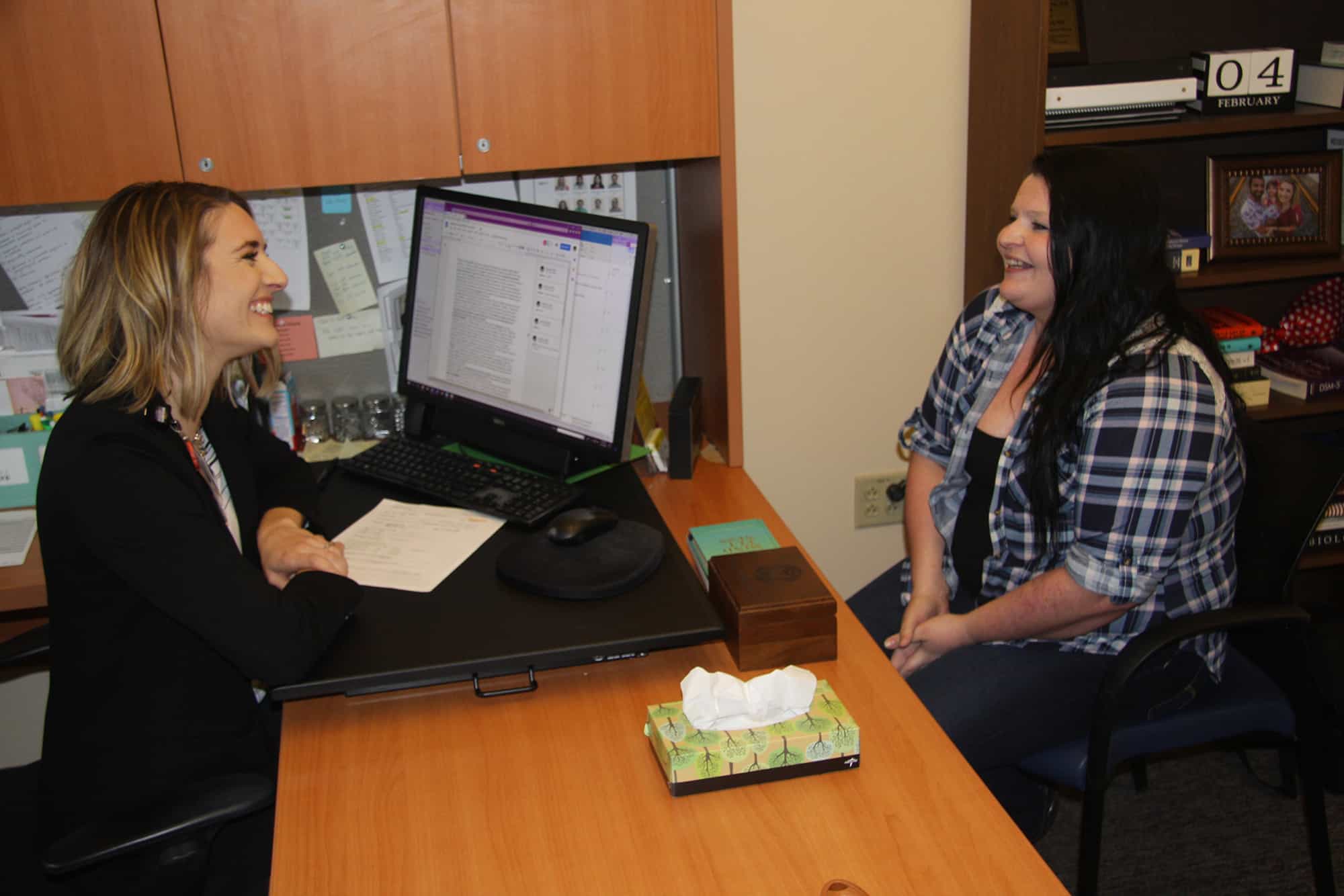View Larger Image

Patrisha Pettus (right) goes over her treatment plan with UAMS’ Jessica Coker, M.D., of the Women’s Mental Health Program.
Image by Tim Taylor
Benton Woman Put Opioids Behind Her with UAMS’ Help
| After 10 years of abusing drugs, Patrisha Pettus was prepared to die.
“I actually thought my addiction was going to kill me,” said Pettus, 35. “I had accepted it, I was waiting to die.”
Pettus’ drug of choice was Dilaudid, a powerful opioid narcotic used to treat moderate to severe pain. “And then I’d use crystal meth just to get through the withdrawals until I could get more pain pills,” she said.
After numerous attempts to beat her substance use disorder, Pettus turned to the UAMS Psychiatric Research Institute’s Women’s Mental Health Program.
“I’d been through other programs where they gave you the medication and told you to leave, there was no other care. They just didn’t work; I desperately wanted help but didn’t know where to get it.”
Pettus, a Benton resident, learned of the Psychiatric Research Institute after giving birth to her most recent child at UAMS in late 2018. “I wasn’t expecting much because none of the other programs had helped me,” said Pettus.
“Patrisha had severe opioid use disorder, not to mention the problems she’d had with anxiety and depression in the past,” said Jessica Coker, M.D., medical director of the women’s inpatient unit at the institute. “But the first time I met her I could see that she was very motivated to make a change in her life.”
Coker began Pettus on medication-assisted treatment for opioid use disorder as well as a medication for her anxiety. “Almost immediately she began to show improvement,” said Coker, who Pettus described as a “miracle worker.”
“They offer very personalized care for each individual,” said Pettus, who has relied on individual therapy, group therapy and a peer counselor to get to what she calls “a wonderful point right now.”
The warm environment of the Women’s Mental Health Program was, unfortunately, not enough to prevent Pettus from relapsing back into her drug habit. To her surprise, she was readily accepted back into the program.
“I was afraid they were going to kick me out but they didn’t put me down, instead they helped me get back on track.”
“She hit a bump in the road; there were some very stressful events that derailed her,” said Coker, who turned to UAMS psychologist Michael Cucciare, Ph.D., for assistance. “Dr. Cucciare worked with her on her anxiety and her self-confidence. He helped her learn how to work with people better.”
Her sessions with Cucciare allowed Pettus to “get to the root of what causes the problem,” she said. “They don’t just leave you on your own; they’re always willing to help.”
Pettus credits the efforts of the staff in the Women’s Mental Health Program with helping her reach Phase II of their therapy plan, which requires six negative drug screenings in as many weeks. After that comes another four negative screenings in four weeks, and she will advance to monthly screenings.
“Dr. Coker is very empathetic, she relates to the person she is treating. She doesn’t judge them,” said Pettus. “She is an amazing doctor, she is very intuitive to the needs of someone in recovery,”
Once homeless, with her children in foster care, Pettus now has a home, a car and has four of her children living with her.
“Patrisha is on a very good path,” said Coker. “She still has a lot of work to do but she is on the right road.”